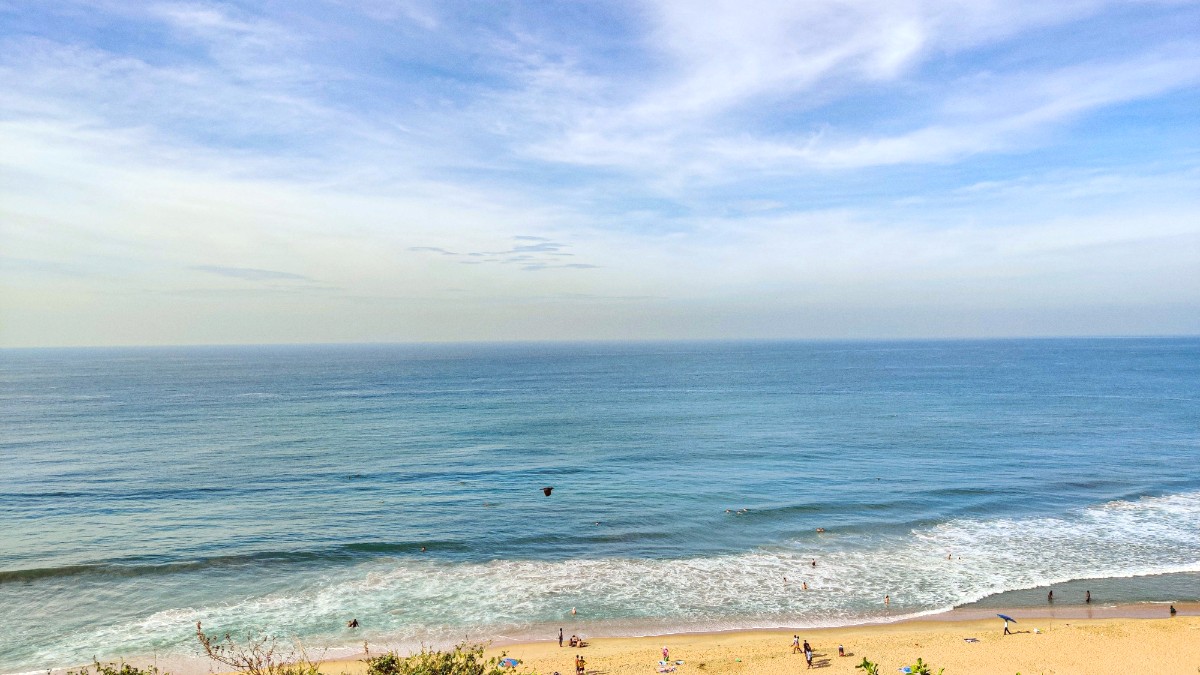
Kerala, India
Coconut makes up a core element in Kerala cooking. It takes on various forms: grated coconut in curries, coconut milk as a gravy base, and coconut oil for cooking.
Rice, the staple, appears as steamed rice, appam, idiyappam, or puttu. Kerala, the 'Spice Garden of India,' uses cardamom, black pepper, cinnamon, cloves, ginger, garlic, turmeric, curry leaves, and mustard seeds for warm, earthy flavors. Seafood abounds, with fresh fish, prawns, crab, and squid in curries and fries. Tropical vegetables like plantains, tapioca, and gourds get extensive use in vegetarian meals.
Traditional eating involves the right hand. Many tourist restaurants give cutlery, but using your hand, like locals, can be a nice cultural touch.
Sharing dishes among diners often happens, especially with multiple curries and breads.
In Hindu-majority India, beef is generally not served. Varkala's tourist Cliff eateries usually omit it, though local spots in Varkala Town might have it.
A Kerala staple. Fresh fish (Kingfish, Seerfish, Pomfret) cooked in a spicy, tangy gravy with coconut milk, tamarind, and spices.
Widely available on the Cliff.
Pearl Spot Fish wrapped in banana leaf. A whole Pearl Spot fish marinated in rich spices, then grilled or steamed until tender.
A specialty dish.
Appam: soft, lacy rice pancakes with crisp edges, made from fermented rice batter and coconut milk. Served with mild, fragrant stew (vegetables, chicken, or mutton in coconut milk).
Breakfast or dinner option.
Ripe plantain slices coated in light, sweet batter, deep-fried until golden. Crispy outside, soft inside. A beloved snack.
Savory, crispy fritters from spiced lentils, often with chai. Boli and Payasam: Sweet, thin lentil pancake (Boli) with sweet rice pudding (Payasam) for dessert.
Varkala does not typically have 'fine dining' in a metropolitan sense. Some higher-end resorts offer refined dining. These often focus on fresh seafood, sophisticated ambiance, and attentive service.
North Cliff has many mid-range restaurants and cafes. They offer diverse menus: Indian, fresh seafood, Israeli, Italian, and Continental. They offer quality food, comfortable settings, and reasonable prices.
For authentic, affordable Kerala meals, try small local restaurants (dhabas) and tea stalls in Varkala Town. These places give a genuine local experience and lower prices.
Tender Coconut Water: Refreshing, hydrating. Vendors chop open fresh green coconuts. Fresh Fruit Juices: Mango, pineapple, watermelon, lime soda (sweet or salty).
Hydrating and widely available.
Chai (Masala Tea): Spiced milk tea found everywhere. Filter Coffee: Strong, sweet South Indian coffee, often with milk. Toddy (Palm Wine): Mildly alcoholic, fermented palm sap. In local 'Toddy Shops' outside main tourist zones.
Experience local flavors.
Thinly sliced raw bananas, deep-fried crispy, lightly salted. Popular snack and souvenir.
Like banana chips but from jackfruit.
Rich, sweet pudding (milk, rice/vermicelli, jaggery/sugar), flavored with cardamom, nuts, dried fruits.
Sweet, thin lentil pancake often served with Payasam.
Kerala has a Muslim population, so most meat (chicken, mutton) is implicitly Halal. Finding Halal options is easy.
Generally available for meat dishes.
Extremely limited. Travelers needing Kosher food should plan vegetarian or fish options, verifying ingredients carefully.
Rarely available. Coconut is a very common ingredient in Kerala cuisine.
The North Cliff's dining scene is diverse, for a global palate. Israeli, Italian, Tibetan, and various European choices prevail. Many places also serve Western breakfast items.
Varkala does not have typical food halls. However, local markets in Varkala Town offer fresh produce, spices, and ingredients for those with self-catering options.
Several guesthouses and local chefs in Varkala teach Kerala cuisine. These classes cover popular seafood dishes, traditional curries, and local breads.
Food tours are less formal but local guides can arrange them.
Not common within Varkala itself. Tours to spice plantations are day trips to nearby agricultural areas. This shows the origin of local ingredients.
A common and appealing concept on the North Cliff. Many restaurants display their fresh catch of the day on ice. Diners select their desired fish, prawns, crab, or other seafood, and have it cooked to order (often grilled or barbecued).
This ensures freshness and allows for a personalized meal.
The unique geographical setting of Varkala means many restaurants are perched directly on the cliff edge. This presents spectacular sunset views over the Arabian Sea.
This setting elevates the dining experience with a breathtaking natural backdrop.
Look for restaurants advertising 'fresh catch of the day' for seafood.